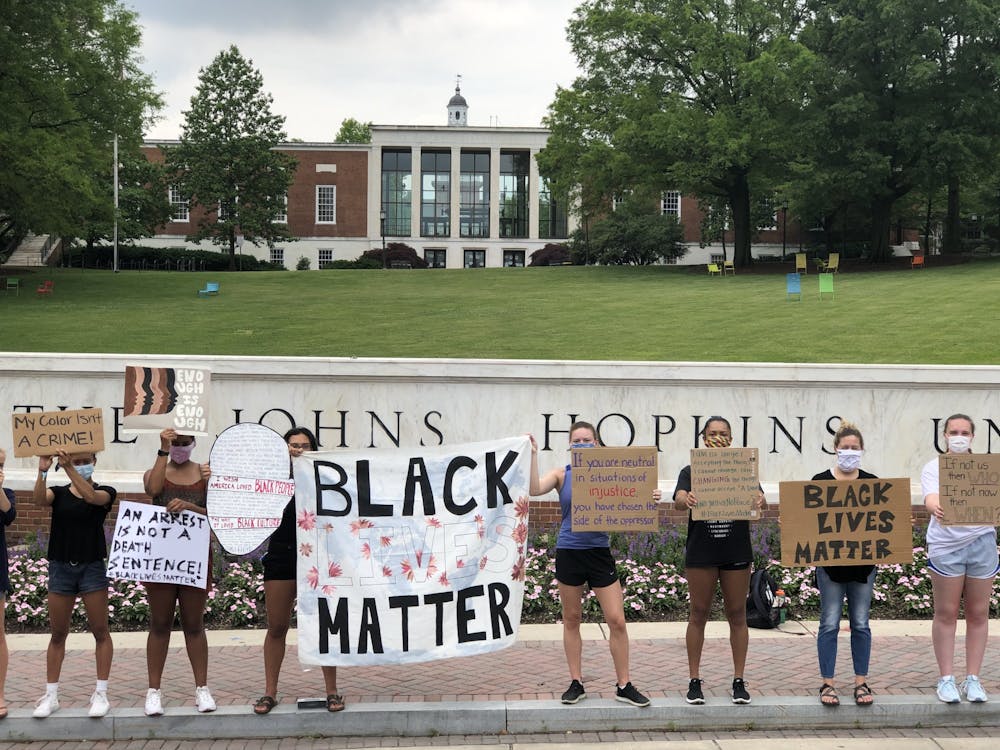When people ask us why we want to go into journalism, our response is almost reflexive. “Our passion,” we say, “is amplifying voices that often go unheard.” As protests across the country condemn police brutality and centuries of racial injustice, we’re thinking about how to best amplify black voices as Editors-in-Chief of The News-Letter.
We knew that it was the paper’s duty to cover the activism that has followed the murders of George Floyd, Ahmaud Arbery, Tony McDade, Breonna Taylor — who would have turned 27 today — and countless others. We knew that we needed to stand in solidarity with the black community. The question was how to use our platform to do so.
Katy messaged the former president of the Black Student Union (BSU), Kendall Free, asking her if she knew anyone who’d want to write an op-ed about the ongoing protests.
“I think it would be great to have more black voices showcased in The News-Letter, but I would also encourage you all to not just have black folks write about ‘black’ issues only,” she replied. “Although my time at JHU is over, I really would have liked to see more outreach to black students from News-Letter for folks to write — which is one of the main reasons BSU re-started our magazine.”
This was hard to hear, but true. Over a year ago, The News-Letter conducted a diversity survey, which found that while 9.9 percent of students at Hopkins were black, our staff was only 4.3 percent black. We (regrettably) have not conducted a diversity survey since, but we know that the numbers aren’t much different today. The News-Letter must do better, especially given that it serves a campus located in Baltimore, a predominantly black city that has been traumatized again and again by structural racism.
We considered publishing an editorial declaring the paper’s official position on the protests and the University’s response. But an editorial from a paper that does not adequately represent the black students it’s supposed to serve isn’t what Black Lives Matter needs right now.
As the white editors-in-chief of a student newspaper, it’s not our voices that should be at the forefront of discussion. We’re not here to give you our opinions. We’re here to ask for yours.
Normally, The News-Letter publishes only Hopkins-related breaking news during the summer. Last week, however, we decided to give every section the option to continue publishing because of the unprecedented nature of the pandemic. Then, protests erupted across the country.
We thank Elise Moore and Peggy-Ita Obeng-Nyarkoh for writing op-eds this week: “From a brokenhearted black Minneapolis resident: Feel what I feel” and “Reminder: We still can’t breathe,” respectively. We recognize their pain and anger. We also recognize the students and the student groups calling on Hopkins to better support the black community and acknowledge its contributions to systemic racism.
We hope that you will share with us your thoughts about the planned private police force. Your tips on how to be a good ally. But we also want to know your reaction to a film you just watched. Your experiences during the pandemic. Your hopes for the upcoming elections.
We promise that The News-Letter will strive to recruit more black writers. We promise to do a better job of making their voices heard.
Click here for more information about writing for The News-Letter. Share your photographs of the ongoing protests with us through this form.
A list of racial justice resources compiled by the BSU can be accessed here.
We encourage our readers to email publiceditor@jhunewsletter.com with questions or comments about our practices and published content.





